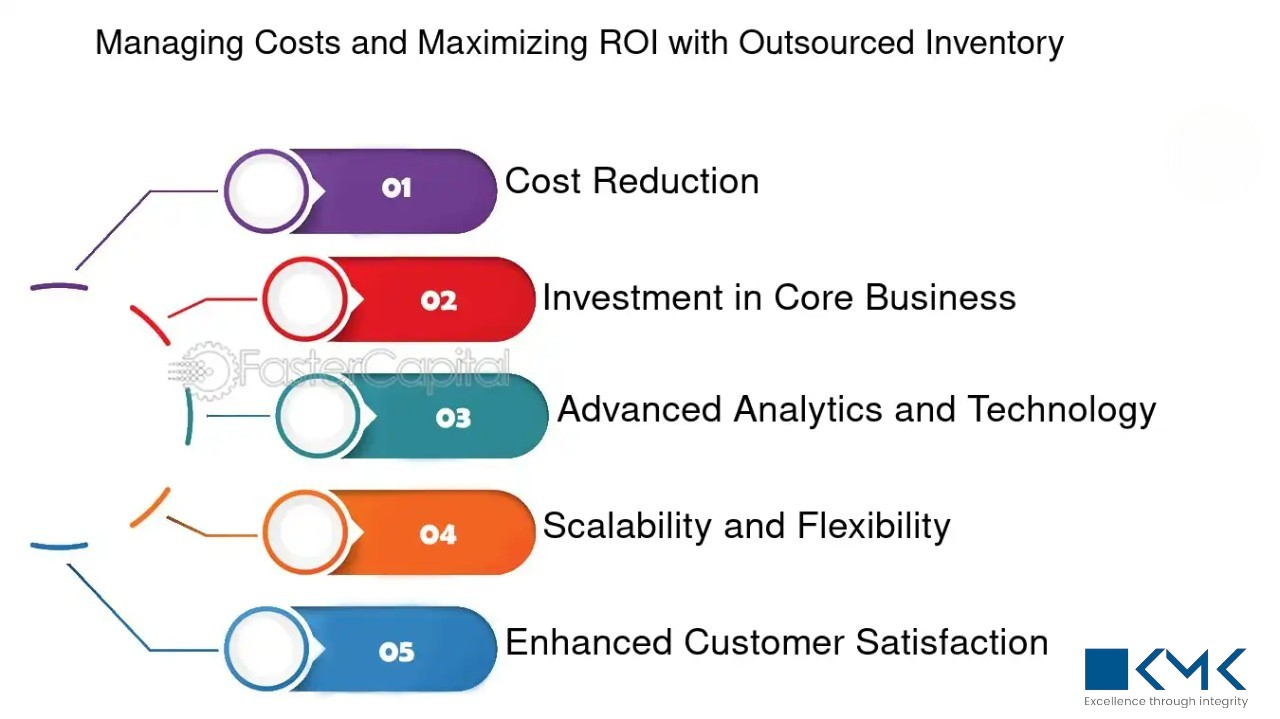How Inventory Management Outsourcing Companies Impact US Supply Chains

Supply chains in the United States are under constant pressure—from rising costs and labor shortages to shifting consumer expectations. In this environment, inventory management outsourcing companies have become strategic partners for businesses looking to strengthen efficiency, reduce costs, and ensure customer satisfaction.
But how exactly do these outsourcing providers reshape supply chains? More importantly, how can US businesses balance outsourcing expenses with financial clarity and growth? That’s where leveraging both specialized partners and expert financial oversight, such as a virtual accountant for small business, makes a significant difference.
Why US Supply Chains Depend on Outsourcing
Supply chains today are no longer just about moving products from warehouses to customers. They require:
-
Real-time visibility of inventory.
-
Flexible responses to demand fluctuations.
-
Lower costs without compromising speed.
-
Advanced analytics for forecasting.
For many businesses, maintaining these capabilities in-house is both expensive and resource-intensive. That’s why outsourcing has become a vital solution.
The Role of Inventory Management Outsourcing Companies
An inventory management outsourcing company helps businesses by:
-
Managing storage: Handling warehouse operations, from shelving to stock rotation.
-
Order fulfillment: Picking, packing, and shipping products quickly.
-
Tracking inventory levels: Using software to prevent overstocking or stockouts.
-
Returns management: Processing returns efficiently to maintain customer trust.
-
Data-driven insights: Providing real-time reporting and demand forecasting.
By delegating these functions, US companies free up time and capital to focus on growth and customer service.
How Outsourcing Impacts the US Supply Chain
Outsourcing inventory management has ripple effects across supply chains. Here are the most significant impacts:
1. Improved Efficiency
With advanced technology and trained staff, outsourcing providers streamline operations. Errors in order fulfillment drop, delivery times improve, and customers receive a consistent experience.
2. Cost Optimization
Businesses reduce overhead costs associated with warehousing, staffing, and technology investments. Since providers often serve multiple clients, they can negotiate bulk shipping rates and pass savings down the supply chain.
3. Scalability and Flexibility
When demand spikes—during holidays or special promotions—outsourcing partners can quickly scale resources. This agility prevents bottlenecks that would otherwise slow supply chains.
4. Access to Advanced Technology
From AI-powered demand forecasting to real-time inventory dashboards, outsourcing companies provide tech that many small and mid-sized businesses couldn’t afford independently.
5. Risk Mitigation
By outsourcing, businesses diversify risks. For example, if one warehouse experiences delays, an outsourcing partner may redirect operations to another facility to keep supply chains running smoothly.
Cost Considerations for US Businesses
While outsourcing strengthens supply chains, it comes with costs that must be carefully managed. Typical expenses include:
-
Storage fees (per pallet or cubic foot).
-
Pick-and-pack charges per order.
-
Technology and software access fees.
-
Shipping and logistics costs.
-
Implementation or onboarding charges.
Without careful financial oversight, hidden costs—like seasonal surcharges or minimum order fees—can disrupt cash flow. That’s where smart financial management is essential.
The Role of a Virtual Accountant in Outsourcing Decisions
Partnering with an outsourcing company is a major financial decision. To ensure it’s cost-effective, businesses often rely on a virtual accountant for small business. Here’s how they help:
-
Contract review: Spotting hidden fees or unfavorable terms.
-
Expense tracking: Monitoring outsourcing costs against revenue gains.
-
ROI analysis: Determining whether outsourcing improves margins and customer retention.
-
Scalability planning: Ensuring that costs don’t spiral during peak seasons.
-
Integration with business goals: Aligning outsourcing with long-term financial strategy.
This combination of operational outsourcing and financial expertise creates a stronger, more resilient supply chain.
Key Benefits for US Supply Chains
When executed properly, outsourcing inventory management provides these supply chain benefits:
-
Faster deliveries: Streamlined fulfillment reduces lead times.
-
Greater accuracy: Advanced systems minimize human error.
-
Customer satisfaction: Reliable service improves brand loyalty.
-
Financial predictability: Clearer cost structures improve budgeting.
-
Strategic focus: Companies spend less time on operations and more on growth initiatives.
Challenges and Risks to Watch
Of course, outsourcing is not without its challenges. Businesses must be aware of:
-
Data security concerns: Protecting sensitive inventory and customer information.
-
Dependence on third parties: Over-reliance on one provider can pose risks.
-
Hidden costs: Unexpected fees can reduce profitability.
-
Cultural or communication gaps: Especially when outsourcing offshore.
Mitigating these challenges requires due diligence, clear contracts, and continuous financial oversight.
How US Businesses Can Maximize Impact
To fully realize the benefits of outsourcing on supply chains, businesses should:
-
Choose the right partner: Evaluate outsourcing companies based on experience, technology, and scalability.
-
Start small: Outsource parts of inventory management first, then expand as trust grows.
-
Monitor performance: Use KPIs such as order accuracy, delivery times, and cost per order.
-
Leverage financial insights: Work with a virtual accountant to track profitability and ensure outsourcing aligns with long-term goals.
-
Stay agile: Continuously adapt outsourcing strategies as supply chains evolve.
Final Thoughts
Inventory management outsourcing companies are reshaping US supply chains by reducing costs, improving efficiency, and enhancing customer satisfaction. For businesses, the challenge lies not only in selecting the right outsourcing partner but also in managing costs and aligning strategies with financial goals.
That’s why combining operational support with expert financial oversight through a virtual accountant for small business is such a powerful approach. Together, these strategies ensure that outsourcing isn’t just an operational change—it’s a long-term investment in supply chain resilience and business growth.
- Art
- Causes
- Crafts
- Dance
- Drinks
- Film
- Fitness
- Food
- Juegos
- Gardening
- Health
- Home
- Literature
- Music
- Networking
- Other
- Party
- Religion
- Shopping
- Sports
- Theater
- Wellness

